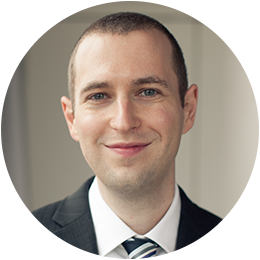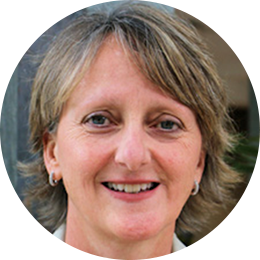
Life Amid COVID: Physician and Medical Staff Leadership in Hospitals and Credentialing
As our Life Amid COVID series winds down I thought there was no better topic to cover than how COVID has impacted our physician leaders. No matter what role you perform in the medical staff office (MSO), odds are you are interacting with physician leadership in some capacity, whether through your Chief Medical Officer, VP of Medical Affairs, chair of the credentials committee or through a host of other roles that help govern your medical staff. As a result, having a good working relationship with these providers is vital. I was incredibly lucky over the years to collaborate with a variety of physician leaders who helped safeguard our patients and allowed for our MSO to run smoothly, no matter what was thrown at us. This was of course put to the test during the very early days of the pandemic in early 2020. More than ever, we looked to our leadership not only for assistance with our regular tasks, but also for assurance as it seemed like chaos descended around us.
Once again, I reached out to Dr. Bonnie Boles who is a Senior Vice President and the Chief Medical Information Officer at Tanner Health System to get some insight into how COVID has impacted our physician leaders. You may remember Dr. Boles from our previous article: "The Importance of Data Governance for Effective Patient Care".
What has been the biggest challenge to being a physician leader during COVID?
The biggest challenge to being a physician leader during COVID was dispelling false information about transmission, prevention, vaccination, quarantine, and isolation policies. Since the public and all hospital staff, in addition to all physicians as well, were witnessing a historic event with science working on solutions in “real time,” it was easy to understand the confusion. However, the politicization of the pandemic made our ability to navigate the situation even more difficult.
What has been most rewarding about being a physician leader during COVID?
With my background being pulmonary and critical care, it was most rewarding to lead our daily surge and planning calls. We had them 7 days a week. We brought all the support departments, all 4 acute care hospitals, and our physicians together to discuss and plan. It was so gratifying. I felt like I was contributing while my colleagues worked so hard in the trenches with patient care. I also led our Convalescent Plasma (CP) participation in the Mayo Clinic clinical trial. That was very demanding as far as ordering and following up on the data input 7 days a week and holidays. We hoped for a more positive result from that study, but we contributed to what was learned about CP for acute, serious COVID infections.
What surprised you the most about being a physician leader during COVID?
What surprised me the most about being a physician leader during COVID was how collaborative and responsive our team was to anything we asked of them. It was so encouraging to see all our providers volunteering to learn about and help in the ICU when we were overwhelmed. We redeployed anesthesia during the elective surgery shut down early on and they were invaluable for patient care in the ICU. I was so impressed and proud of our nurses and providers and the way they stepped up to help. We even had ambulatory providers taking online vent management and ICU classes in case we needed them to join the effort. Thankfully we did not need them in the ICU, and they were able to pivot and provide virtual visits to their patients. I was surprised at how nimble and flexible we were able to be during the height of the pandemic.
I know at one point, in addition to everything you already do, you decided to see patients again. Why did you make that decision?
I saw my colleagues struggling to care for the ICU patients at our smaller hospital while the larger one was well staffed. We have a 6 bed ICU that converted to 12-14 ICU beds during the delta wave, and we did not have enough doctors to care for these critically ill patients. I have maintained my board certification in pulmonary and in critical care and it was an honor to work alongside the ICU nurses that I had worked with prior to becoming a full-time physician administrator. Luckily, it was like riding a bike as far as intubations and central lines and I was able to help.
I know one of the areas of interest for you has been physician burnout. How has COVID impacted this? Is there anything you have been able to implement as a leader to help?
Burnout is real and a huge contributor is also the EHR. We have a physician wellness committee and we have launched many Epic optimization efforts to help with the EHR component of burnout. I feel that rounding and listening to providers makes a big difference and that was difficult during COVID. Things have improved and that face-to-face time is helping us understand the challenges so that we can continue to improve efficiency and workflow.
Do you have any recommendations for Medical Service Professionals (MSPs) to make the credentialing and recredentialing process easier for physicians?
Many things are in place that are helpful, in my opinion. I think that the online recredentialing process that brings over prior information is a huge win. I am so far removed from initial credentialing that I cannot really comment on that process, but anything that is electronic and at our fingertips makes that process easier!
Is there anything you would like to say to all the Medical Service Professionals (MSPs) out there?
Yes, I would like to thank all the MSPs for their hard work and diligence keeping us safe. Your role in credentialing helps us identify issues and bring solutions before things go wrong or get missed. I think that my role is to bridge the gap between providers and the electronic health record to improve that experience for providers. The MSP's role is similar in that you bridge that gap between administration and providers and make that experience better for providers.
I would like to thank Dr. Boles and all our physician leaders out there for everything that they have done during COVID. Please know that all your hard work has not gone unnoticed. Finally, I would also like to thank all the MSPs for their continued work and dedication to the field. As we continue to move beyond the pandemic, the relationships formed with our physician leaders will continue to evolve. However, it is important to take a step back and reflect on everything we have all been through over the last few years. Hard lessons were undoubtedly learned, but it is my hope that we can use this knowledge as we move towards our shared goal of ensuring patient safety.

